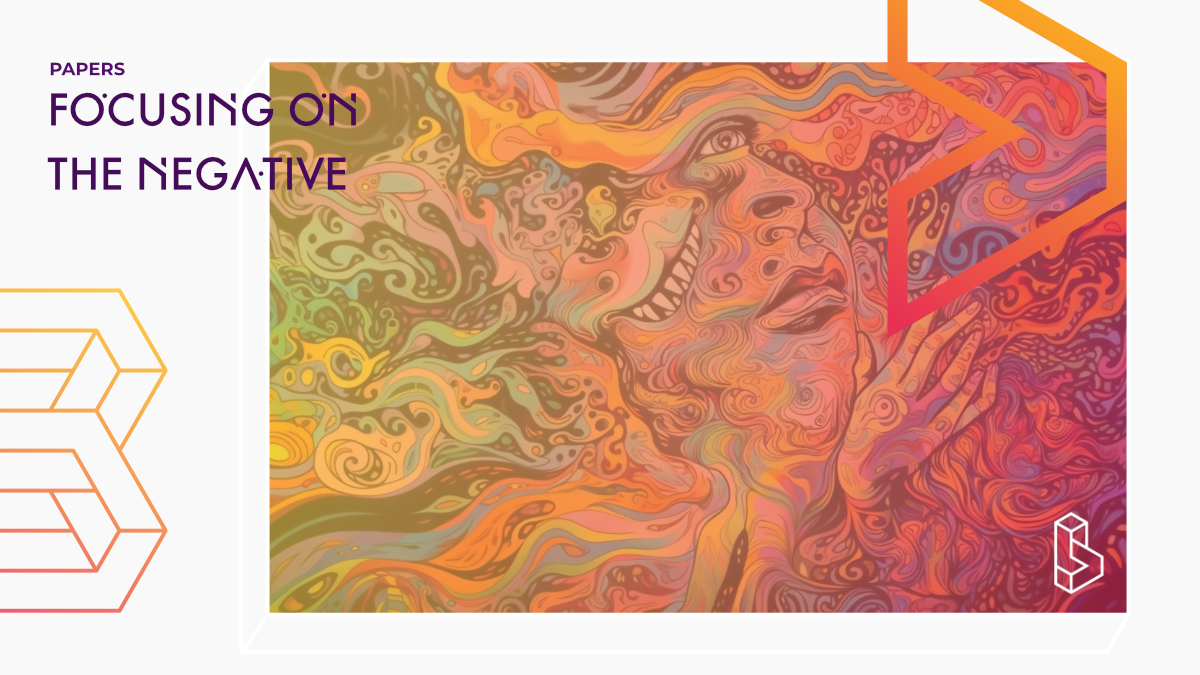This survey (n=32) and interview (n=15) study of those who had negative psychological responses to psychedelics (>72 hours) identified potential causal factors, such as unsafe or complex environments during or surrounding the experience, prior psychological vulnerabilities, high or unknown drug quantities, and young age. However, due to the small sample size and selective recruitment approach, the study can’t be used to infer the prevalence of adverse outcomes from psychedelic use.
Abstract of Case analysis of long-term negative psychological responses to psychedelics
“Background: Recent controversies have arisen regarding claims of uncritical positive regard and hype surrounding psychedelic drugs and their therapeutic potential. Criticisms have included that study designs and reporting styles bias positive over negative outcomes.
Aim: The present study was motivated by a desire to address this alleged bias by intentionally focusing exclusively on negative outcomes, defined as self-perceived ‘negative’ psychological responses lasting for at least 72 hours after psychedelic use. A strong justification for this selective focus was that it might improve our ability to capture otherwise missed cases of negative response, enabling us to validate their existence and better examine their nature, as well as possible causes, which could inspire risk-mitigation strategies.
Methods: Via advertisements posted on social media, individuals were recruited who reported experiencing negative psychological responses to psychedelics (defined as classic psychedelics plus MDMA) lasting for greater than 72 hrs since using. Volunteers were directed to an online questionnaire. These data were analysed using quantitative methods. A key second phase of this study involved reviewing all of the submitted cases, identifying the most severe – e.g., where new psychiatric diagnoses were made or pre-existing symptoms made worse post psychedelic-use – and inviting these individuals to participate in a semi-structured interview with two members of our research team, where relevant experiences and backgrounds were examined in greater depth. Based on the content of these interviews, a brief summary of each case was compiled, and an explorative thematic analysis was used to identify salient and consistent themes and infer common causes.
Results: Thirty-two individuals fully completed an onboarding questionnaire (56% male, 53% < age 25). 37.5% of completers had a psychiatric diagnosis that emerged after their psychedelic experience, and anxiety symptoms arose or worsened in 87%. Twenty of the seemingly severer cases were invited to be interviewed; of these, 15 accepted an in-depth interview that lasted on average 60 minutes. This sample was 40% male, mean age = 31±7. Five of the fifteen (i.e., 33%) reported receiving new psychiatric diagnoses after psychedelic-use and all fifteen reported the occurrence or worsening of psychiatric symptoms post use, with a predominance of anxiety symptoms (93%). Distilling the content of the interviews suggested the following potential causal factors: unsafe or complex environments during or surrounding the experience, unpleasant acute experiences (classic psychedelics), prior psychological vulnerabilities, high- or unknown drug quantities and young age.
Conclusion: The current exploratory findings corroborate the reality of mental health iatrogenesis via psychedelic-use but due to design limitations and sample size, cannot be used to infer on its prevalence. Based on interview reports, we can infer a common, albeit multifaceted, causal mechanism, namely the combining of a potent pro-plasticity drug (often ‘over-dosed’) with adverse contextual conditions and/or special psychological vulnerability – either by young age or significant psychiatric history. Results should be interpreted with caution due to the small sample size and selective nature of the recruitment approach.“
Authors: Rebecka Bremler, Nancy Katati, Parvinder Shergill, David Erritzoe & Robin L. Carhart-Harris
Summary of Case analysis of long-term negative psychological responses to psychedelics
Psychedelic drugs are becoming more common outside of research settings. Evidence suggests that an increasing number of individuals struggling with mental health conditions seek to self-medicate with psychedelics. Questionnaire-based sampling of the naturalistic use of psychedelics has tended to yield positive findings about the mental health benefits vs risks of psychedelic use.
As a reaction to increased promissory messaging and raised awareness of psychedelics, more critical perspectives have recently appeared in scientific press, and some mainstream media productions have also taken a predominantly negative focus on psychedelic medicine. Here the authors sought to counter such potential biases.
Find this paper
Case analysis of long-term negative psychological responses to psychedelics
https://doi.org/10.1038/s41598-023-41145-x
Open Access | Google Scholar | Backup | 🕊
Cite this paper (APA)
Bremler, R., Katati, N., Shergill, P., Erritzoe, D., & Carhart-Harris, R. (2023) Case analysis of long-term negative psychological responses to psychedelics. Sci Rep 13, 15998 https://doi.org/10.1038/s41598-023-41145-x
Authors
Authors associated with this publication with profiles on Blossom
Robin Carhart-HarrisDr. Robin Carhart-Harris is the Founding Director of the Neuroscape Psychedelics Division at UCSF. Previously he led the Psychedelic group at Imperial College London.
David Erritzoe
David Erritzoe is the clinical director of the Centre for Psychedelic Research at Imperial College London. His work focuses on brain imaging (PET/(f)MRI).
Institutes
Institutes associated with this publication
Imperial College LondonThe Centre for Psychedelic Research studies the action (in the brain) and clinical use of psychedelics, with a focus on depression.

